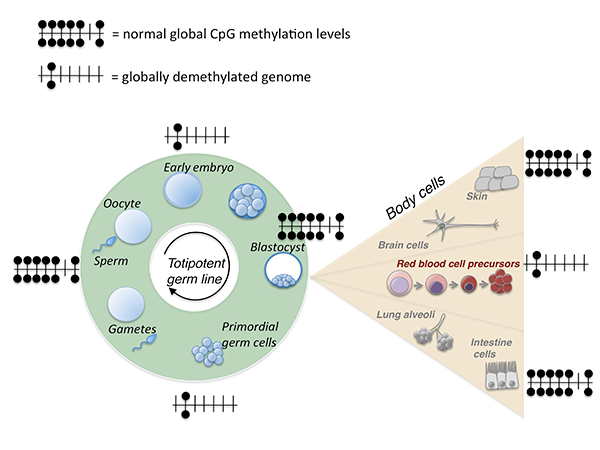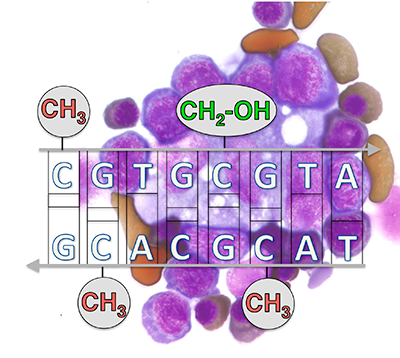Genome-wide DNA demethylation in Erythropoiesis
In the mammalian genome, approximately 70% of CpG dinucleotides are methylated, a modification that is associated with gene silencing. Twice during early development, in the zygote and in primordial germ cells, there is a global loss of CpG methylation from the genome (see figure). Methylation is re-established at the blastocyst stage, and remains globally stable throughout subsequent somatic development, with modifications taking place only at tissue-specific genes. Our lab found a key exception to this rule: the onset of erythroid transcription in early erythroid precursors triggers a process of global genome demethylation, that persists throughout erythroid differentiation [1]. Approximately a third of all DNA methylation is lost from essentially all genomic elements, including enhancers, promoters and repetitive elements. Global demethylation is intrinsic to erythroid differentiation, taking place in yolk sac, fetal and adult erythropoiesis including the human bone-marrow. Our lab is investigating the mechanism and function of this process and its significance in disease.


5-methylcytosine may be further oxidized by the Tet family of proteins to 5-hydroxymethylcytosine, a modification that was recently implicated in the regulation of gene expression. We are investigating the role of both these modifications in erythropoiesis. The translational relevance of this work is underscored by the well-established global hypomethylation in cancer, and the frequent mutations in DNA methylation regulators found in hematologic malignancies.
See webpage: Epigenome data analysis for: Mouse tissue differentiation erythroblasts v3
Reference:
1. Shearstone, J.R., Pop, R., Bock, C., Boyle, P., Meissner, A., and Socolovsky, M. (2011). Global DNA demethylation during mouse erythropoiesis in vivo. Science 334, 799-802.
